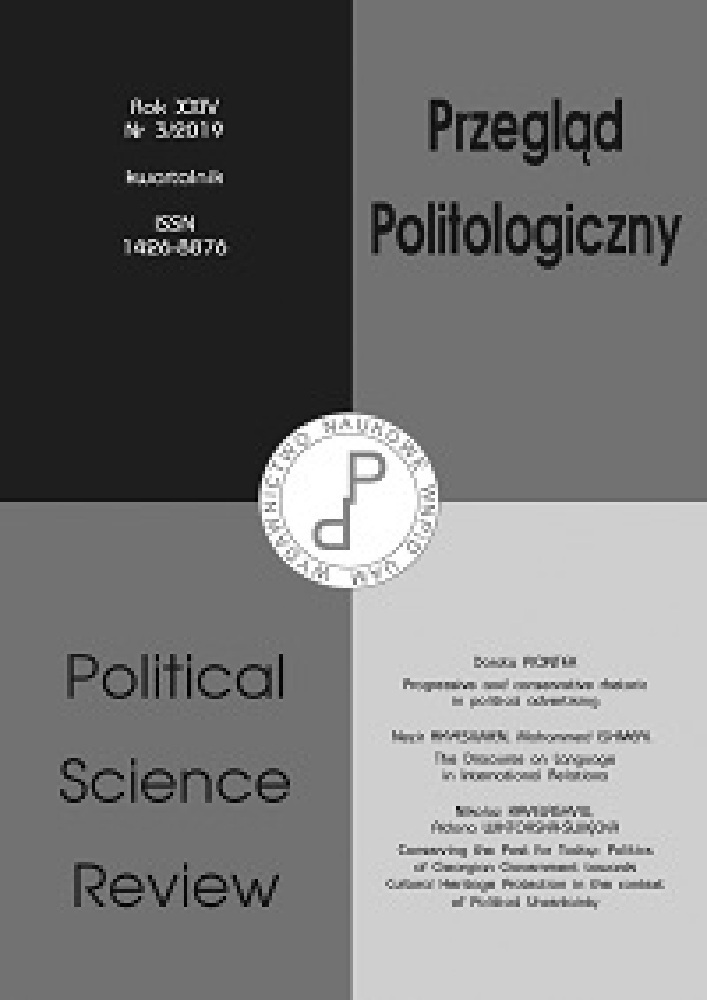Abstract
The article aims to present the results of the study regarding the view of modern students at the university. Several research problems were formulated as follows: what sources of information and knowledge about the world do contemporary students use; what are the main goals of higher education according to modern students; why are modern students deciding to start a higher education course; who is an academic teacher for a modern student? The research tool was a questionnaire made available to the students electronically. Research has shown that the University is one of the sources of information for 65% of students participating in the study. Only the Internet has obtained more indications. Futhermore, Respondents regarded the key objectives of higher education as contributing to the intellectual development of students, vocational training and awarding academic degrees and issuing diplomas. The main reasons why the respondents chose to study at a higher school were: the desire to obtain higher education, the desire for intellectual development and the acquisition of specific practical skills. Academic teachers are for students who have answered the open question, above all persons transferring knowledge. 21% of them gave the answer “master” and all synonyms of this term.
References
Wolff R. P. (1969), The Ideal of the University, Beacon Press, Boston.
Denek K. (2011a), Uniwersytet w pespektywie społeczeństwa wiedzy. Nauka i edukacja w uniwersytecie XXI wieku, Wyższa Szkoła Pedagogiki i Administracji im. Mieszka I, Poznań.
Denek K. (2011b), Uniwersytet w perspektywie społeczeństwa wiedzy. Dydaktyka akademicka i jej efekty, Wyższa Szkoła Pedagogiki i Administracji im. Mieszka I, Poznań.
Tunnermann C. (1996), A new vision higher education, “Higher Education Policy”, no 1 [za:] Denek K. (2011), Uniwersytet w perspektywie społeczeństwa wiedzy. Dydaktyka akademicka i jej efekty, Wyższa Szkoła Pedagogiki i Administracji im. Mieszka I, Poznań.
Bauman Z. (2017), Wyzwania dla edukacji w dobie płynnej nowoczesności, w: Uniwersytety, naukowcy i studenci w zglobalizowanym świecie, pod. red. R. Siemieńskiej, SCHOLAR, Warszawa.
The Act of 20th of July 2018, the Law on Higher Education and Science (Journal of Laws 2018, item 1668).
Bukraba-Rylska I. (2015), „Lawina” i „kamienie”, czyli pole akademickie w procesie transformacji, w: Szkolnictwo wyższe, uniwersytet, kształcenie akademickie w obliczu koniecznej zmiany, pod. red. M. Szczepańskiego, K. Szafraniec, A. Śliz, PAN, Warszawa.
Idea Uniwersytetu. Reaktywacja (2014), pod. red. P. Sztompki, K. Matuszka, Wydawnictwo Uniwersytetu Jagiellońskiego, Kraków.
Sajduk B. (2014), Pokolenie Y a metody dydaktyki akademickiej, „Kultura i Polityka: Zeszyty Naukowe Wyższej Szkoły Europejskiej im. ks. Józefa Tischnera w Krakowie”, nr 16.
Prensky M. (2001), Digital Natives, Digital Immigrants, On the Horizon, University Press, vol. 9, https://www.marcprensky.com/writing/Prensky%20-%20Digital%20Natives,%20Digital%20Immigrants%20-%20Part1.pdf, 25.03.2019.
Sajdak A. (2013), Paradygmaty kształcenia studentów i wspierania rozwoju nauczycieli akademickich, Impuls, Kraków.

